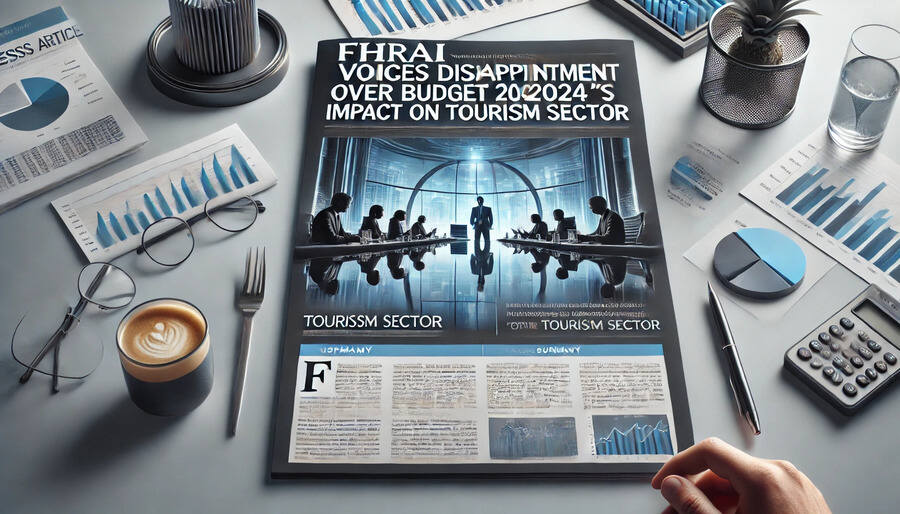Tuesday, July 23, 2024
Reading Time: 2 minutes

FHRAI criticizes Budget 2024 for ignoring key tourism sector needs, impacting growth.
The Union Budget for 2024-25, unveiled today by Finance Minister Nirmala Sitharaman, has been eagerly anticipated by the hospitality industry amid the Indian government’s ambitious goal of achieving a developed Bharat by 2047, emphasizing the significant contribution of tourism to this vision. However, the budget falls short of introducing groundbreaking changes necessary to overcome the core challenges the sector faces in the global landscape and to propel the industry toward becoming a $3 trillion economy by 2047.
Despite the well-known positive impact of tourism on job creation and economic growth, important measures like GST rationalization, the assignment of infrastructure status, and enhancements in business operations and policy reforms were overlooked in the budget. These elements are crucial for revitalizing the tourism and hospitality industry, yet they remain unaddressed once more.
Pradeep Shetty, President of FHRAI said, “Although the budget falls short of our expectations for transformative changes in the tourism and hospitality sectors, we acknowledge its positive focus on
infrastructure, rural development, and skill enhancement. These initiatives are crucial for overcoming current challenges and fostering growth. The commitment to develop iconic cultural sites and promote diverse forms of tourism is commendable and holds promise for attracting a broader range of domestic and international visitors”.
While the hospitality sector may feel somewhat let down by the absence of specific transformative measures in the 2024-25 Union Budget, there are still promising aspects focused on infrastructure development, employment generation, skill enhancement, and the development of religious tourism centers. These elements offer a glimmer of hope and are expected to help the industry navigate some of its pressing challenges.
The government’s efforts to boost tourism through the enhancement of spiritual and cultural sites, such as the Vishnupath temple in Gaya and the Mahabodhi temple in Bodhgaya, are particularly noteworthy. These initiatives, along with development projects in Rajgir and Nalanda, aim to promote India’s rich historical and educational heritage. Additionally, the focus on tourism development in Odisha seeks to showcase the state’s unique features while fostering sustainable practices that protect its natural and cultural assets.
The budget also includes substantial investments in infrastructure and rural development, which are poised to enhance domestic travel. Improved transportation and better facilities in rural areas are making it more appealing for Indians to travel within their own country, fueling a surge in domestic tourism. These initiatives are designed to not only support existing tourist spots but also facilitate the development of new attractions throughout India.
Furthermore, the budget’s emphasis on youth employment, skill development, and job creation is a vital response to the current skills gap in the hospitality sector. The Finance Minister’s speech underscores the government’s ambition to position India as a top global travel destination by investing in key areas such as iconic spiritual sites and promoting cruise and beach tourism, which are expected to draw both domestic and international visitors.




